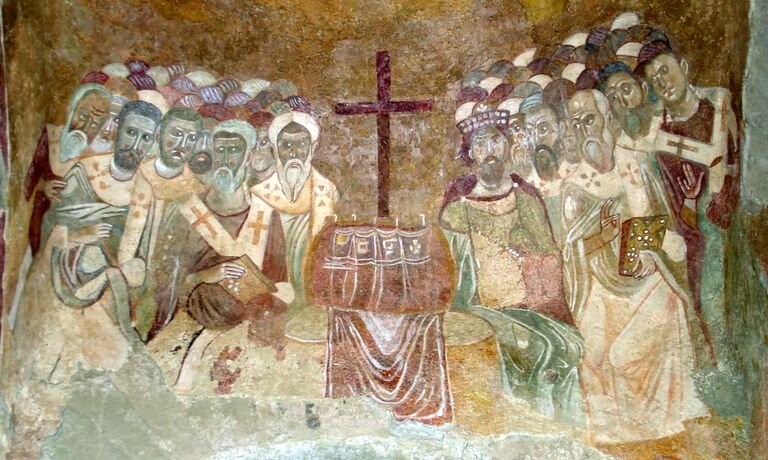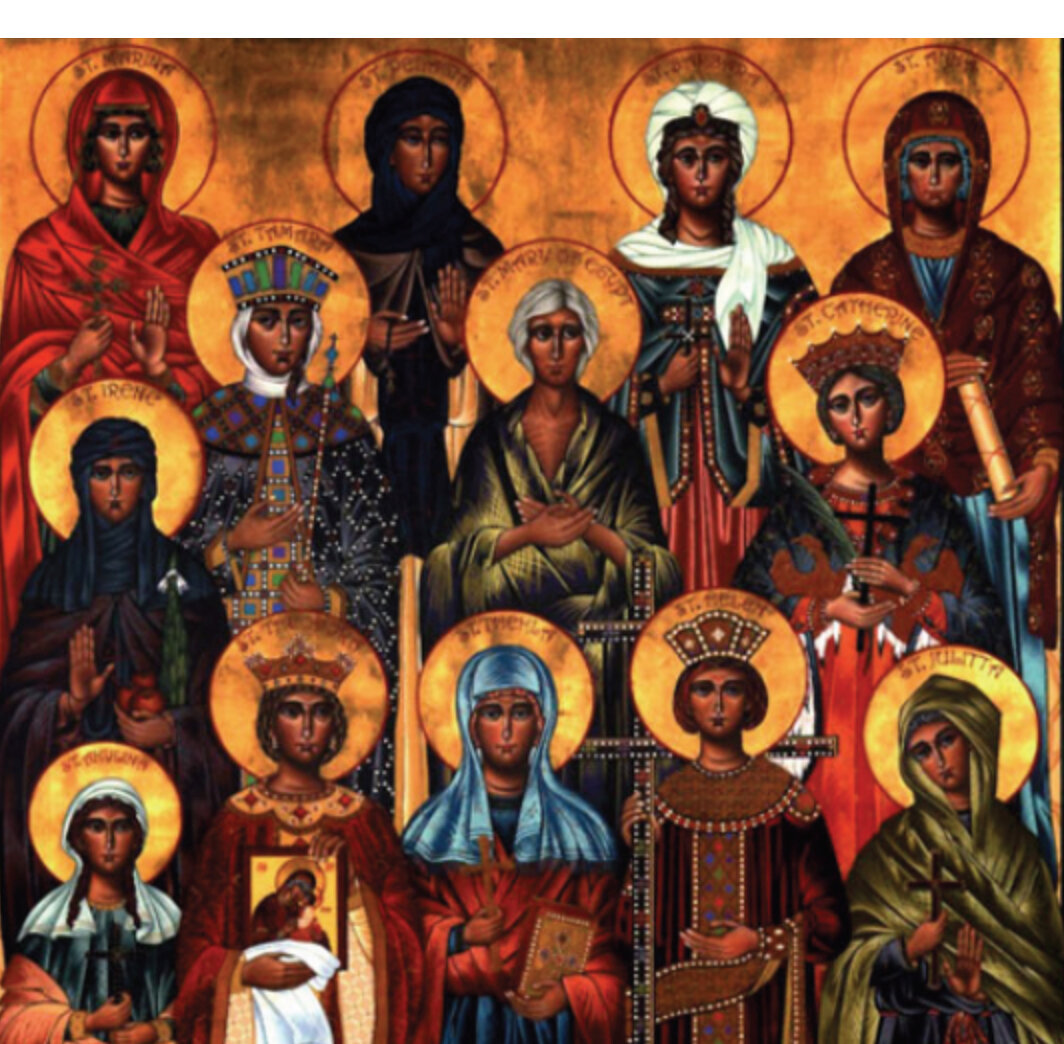
Longing for the Beloved by Mirabai Starr
There is a longing that burns at the root of spiritual practice. This is the fire that fuels your journey. The romantic suffering you pretend to have grown out of, that remains coiled like a serpent beneath the veneer of maturity.

“The Arian Controversy and the Council of Nicea” by N.S. Gill
The Arian controversy (not to be confused with the Indo-Europeans known as Aryans) was a discourse that occurred in the Christian church of the 4th century CE, that threatened to upend the meaning of the church itself.
The Christian church, like the Judaic church before it, was committed to monotheism: all the Abrahamic religions say there is only one God. Arius (256–336 CE), a fairly obscure scholar and presbyter at Alexandria and originally from Libya, is said to have argued that the incarnation of Jesus Christ threatened that monotheistic status of the Christian church, because he was not of the same substance as God, instead a creature made by God and so capable of vice. The Council of Nicea was called, in part, to resolve this issue.
Be a supporter of ThoughtCo

“Jesus: His Religion” – (Pt. 2) by Alan Watts
So, let’s suppose then that Jesus had such an experience. But, you see, Jesus has a limitation, that he doesn’t know of any religion other than those of the immediate Near East. He might know something about Egyptian religion, and perhaps a little bit about Greek religion, but mostly about Hebrew. There is no evidence whatsoever that he knew anything about India or China. And people who think that Jesus was God assume that he must have known because he would have been omniscient. No, Saint Paul makes it perfectly clear in the Epistle to the Philippians that Jesus renounced his divine powers so as to be Man.
BE A SUPPORTER OF THE ALAN WATTS ORGANIZATION

“Jesus: His Religion” – (Pt. 1) by Alan Watts
Some years ago, I had just given a talk on television in Canada when one of the announcers came up to me and said, “You know, if one can believe that this universe is in the charge of an intelligent and beneficent God, don’t you think He would naturally have provided us with an infallible guide to behavior and to the truth about the universe?” Of course I knew he meant the Bible. I said, “No, I think nothing of the kind, because I think a loving God would not do something to His children that would rot their brains.” Because if we had an infallible guide we would never think for ourselves, and therefore our minds would become atrophied. It is as if my grandfather had left me a million dollars, and I am glad he didn’t. And we have therefore to begin any discussion of the meaning of the life and teachings of Jesus with a look at this thorny question of authority, and especially the authority of Holy Scripture.
BE A SUPPORTER OF THE ALAN WATTS ORGANIZATION

Arius vs Athanasius - Lecture by Dr. Richard Rubenstein - Presented by 21st Century Reformation
In a rare presentation, Richard Rubenstein, author and professor of Conflict Resolution at George Mason University, addresses a conference of One God believers in Atlanta. Rubenstein, author of the book "When Jesus became God" brings us exceptional insights into the great Christian conflicts that surrounded the "Arian" controversy and particularly the council of Nicea in 325 AD. This is a must see for everyone with an interest in church history, the development of post-biblical Christian orthodoxy and/or conflict resolution.

“Faith and Modernity” by Karen Armstrong
In the Western world, a strong belief in the objective truths of religion, which are viewed as incontrovertible, demonstrable facts, is regarded as essential to the life of faith. When asking if somebody is religious, people often inquire: “Does he or she believe?” as though accepting certain creedal propositions was the prime religious activity. Indeed, faith is equated with belief, but this equation is of recent provenance. Originally the meaning of the word “faith” was akin to trust, as when we say that we have faith in a friend or an ideal. Faith was not an intellectual position but a virtue: it was the careful cultivation, by means of the rituals and myths of religion, of the conviction that, despite all the dispiriting evidence to the contrary, life had some ultimate meaning and value.
SUPPORT WORLDWISDOM.COM AND MS. ARMSTRONGS WORK

"In Order to Discover God "(excerpt) DEMOCRACY IN THE KINGDOM by Alan Watts
In order to discover God you have to stop clinging entirely. Why does one cling to God? For safety, of course. You want to save something; you want to save yourself. I don’t care what you mean by saved, whether it means just feeling happy, or that life is meaningful, or that there is somebody up there who cares. If you do not cling to one god, you cling to another: the state, money, sex, yourself, power. These are all false gods. But there has to come a time when clinging stops; only then does the time of faith begin. People who hold on to God do not have any faith at all, because real faith lies in not holding on to anything.
SUPPORT THE ALAN WATTS PROJECT

"Christian Mysticism as a Threat to Papal Traditions" by Hayley E. Pangle
From the Gnostics of the second century to the Waldesians of the thirteenth century, popular religion as practiced outside the structures of the Roman Church challenged the religious authority of the papacy and greatly influenced the decisions it made as it refined doctrines, decrees, and practices that it deemed acceptable to the church. Christian mysticism, although having its roots in the earliest days of Christianity, expanded and intensified in the eleventh through fourteenth centuries in Europe. Several aspects of the mystic Christianity in the Middle Ages challenged the traditions of the church, including the mystics’ theological interpretation of scripture, their graphic visions, and their threat to established gender roles.

